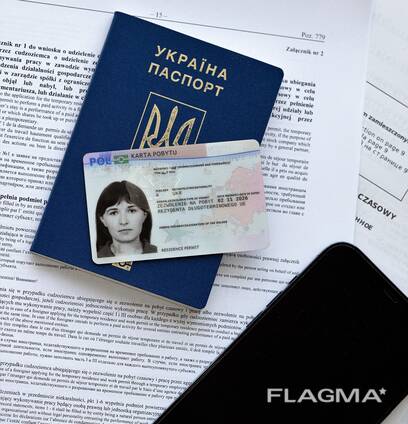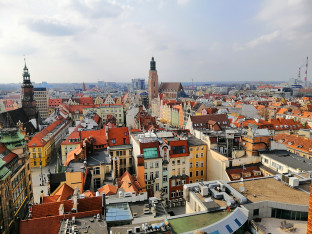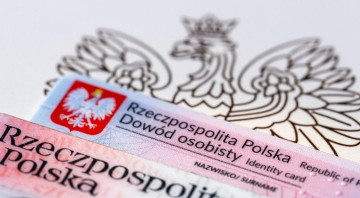A decision (from the Polish word deczyć) is an official administrative decision adopted by a state authority in Poland. In the context of migration and legal processes, a decision often concerns issues related to the granting or refusal of residence permits (e.g. residence cards), employment, citizenship or other documents.
Main characteristics of a decision:
- Form of an administrative decision: a decision is drawn up in writing, has legal force and contains a clearly formulated decision on a specific case.
- Can be positive or negative: a decision can approve a request (e.g. to grant a residence card) or contain a reasoned refusal.
- Right to appeal: if a person receives a negative decision, they have the right to appeal it within a specified period, usually to a higher instance or administrative court.
- Structure of the decision: Usually the document contains an introductory part with the data of the parties, the content of the decision, legal reasoning, instructions for appeal and the signature of the official who made the decision.
When applying for a residence card, citizenship or work permit, the applicant receives a decision confirming the permit or containing the reasons for refusal. For example, a decision to refuse to issue a residence card may include arguments why the applicant does not meet the requirements and contain recommendations for correcting the situation.
For departure for permanent residence (permanent residence), moving to Poland, a decision is required if you plan to obtain a permanent residence card or an EU long-term resident card. The decision is an official decision of the Polish Migration Service confirming the right to long-term or permanent residence in the country. The decision to issue a residence card in Poland is made after reviewing the submitted documents and checking all the grounds on which the applicant is applying for a residence permit. Usually, the decision-making process goes through the following stages:
- Submission of documents: the applicant submits all the necessary documents to the relevant voivodship office or other body responsible for issuing the beat card. A date for an in-person meeting and interview is often set at the time of application.
Document review: The institution checks the documents to confirm the presence of all necessary supporting documents, such as reason for residence, financial capacity, living conditions, etc. This process can take several months, depending on the type of card (temporary, permanent, based on work or study). - Verification of additional data: If necessary, additional documents may be requested or additional checks may be carried out. In some cases, the applicant may be called for explanations or an interview.
- Making a decision (decision): after completion of checks and consideration of all submitted documents, a decision is made - either a positive decision to issue a beat card, or a refusal with reasons.
- Notification of the decision: after the decision is made, the applicant is informed of the decision. In case of a positive decision, the date of receipt of the beaten card is set. If the decision is negative, the applicant has the right to appeal it within a specified period.
The procedure can last from several months to a year or more, depending on the region, the volume of submitted documents and the complexity of the specific case.
Features of the decision:
The decision indicates that the Polish authorities allow you to stay in the country based on a certain status.
Its receipt confirms the legality of your residence and entitles you to issue a residence card.
Without a positive decision, you will not be able to get a card issued for long-term or permanent residence.
Question
When do you need legal help?
Respond
Legal support may be needed to challenge the decision or to collect additional evidence that would increase the chances of a positive decision.
Legal assistance in obtaining a decision to move to Poland can be useful, as the process is formal and requires compliance with clear requirements of Polish law. The decision is a decisive document confirming the right to legal residence in the country, so legal support can help avoid delays and errors in the process.
How a lawyer of the "Consultant" service can help:
- Advice on grounds for residence: a lawyer will help you determine the best grounds for residence and application for a decision, taking into account your individual circumstances (work, study, family reunification, etc.).
- Preparation of documents: the specialist will provide a complete list of documents, help prepare an application, explanations and other necessary documents that meet the requirements of the Polish Migration Service.
- Representation in government institutions: if necessary, a lawyer can represent you in institutions such as the Voivodship Administration, which is responsible for issuing decisions.
- Appealing a refusal: in the event of a refusal of a decision, a lawyer will be able to help with the preparation and submission of an appeal, as well as accompany you in court.
- Support during the procedure: support and explanation during all stages of submitting and receiving a decision to avoid misunderstandings and possible complications.
Advantages of legal support by the "Consultant" service:
- Saving time: the correct preparation of documents the first time reduces the risk of delays and a successful departure for permanent residence in Poland.
- Reducing the risk of rejection: a lawyer helps to avoid the most common mistakes that can cause a decision to be rejected.
- Support in difficult situations: in case of complications or additional requirements, a lawyer will help to respond quickly and resolve issues.
- Confidence in the legality of actions: the lawyer ensures that all stages of the process will comply with the requirements of Polish legislation.
- Protection of the client's interests: in case of disputes or problems with migration authorities, a lawyer will be able to protect your rights.
Legal assistance in obtaining a decision greatly facilitates the process and gives more chances for a positive result. Migration to Poland is a complex process that involves compliance with a number of legal and administrative requirements. A migration lawyer can greatly facilitate this process, as he provides professional assistance and advice at every stage. A migration lawyer will help simplify the migration process and provide legal support that will reduce the stress and risks associated with moving to Poland.































